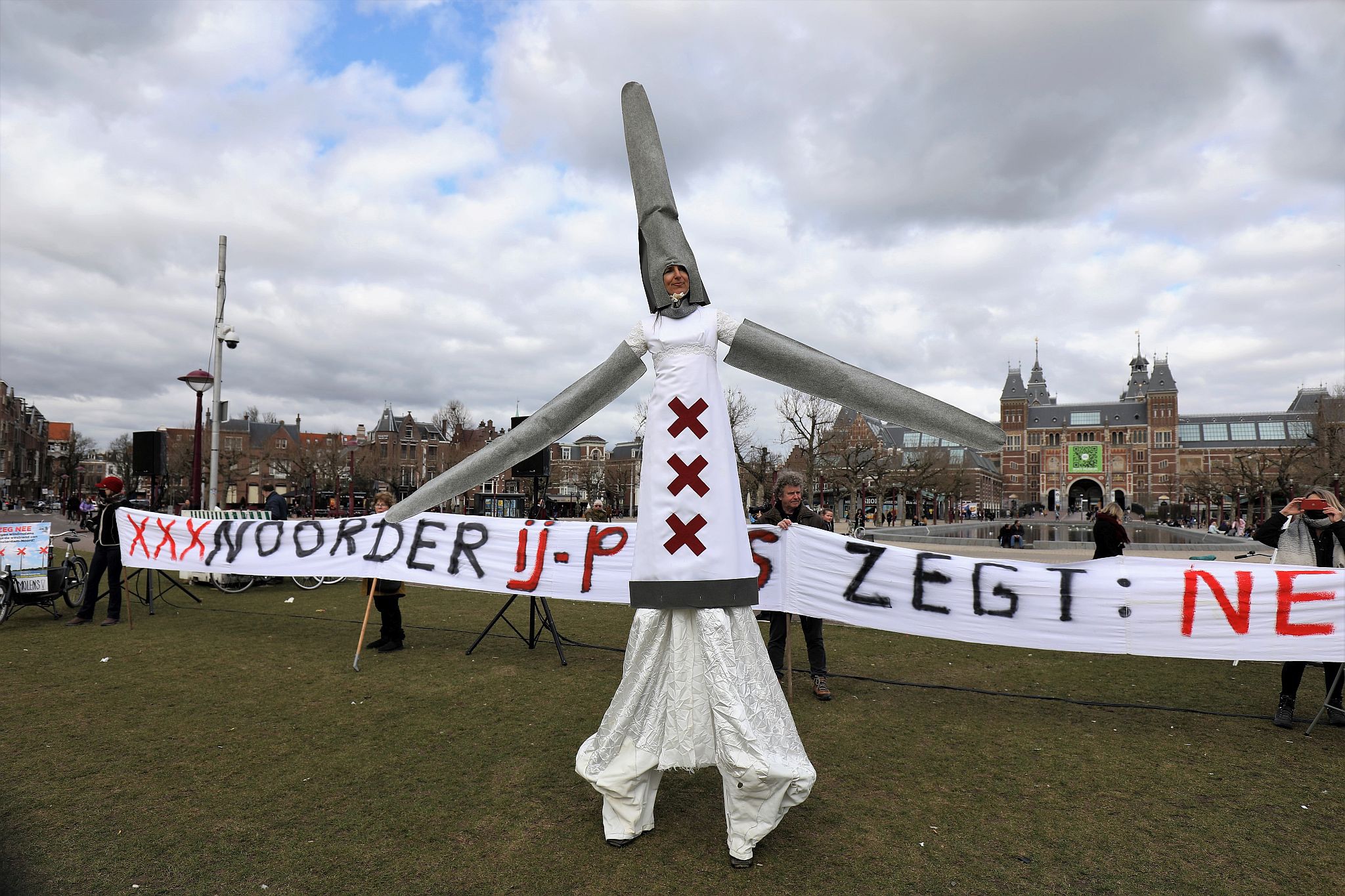To make energy transition possible, new forms of cooperation are necessary. TPM researchers are organising a conference on ‘social innovation’ on 18 and 19 November.
Amsterdam, 8 May 2021 - IJburg citizens protest against a proposed wind farm near their homes. (Photo: Bob Thomas)
Social Innovation in Energy Transition (SIET) is a platform at TU Delft that conducts social science research on the public perception of issues such as solar meadows and wind farms. SIET researchers from the Faculty of Technology, Policy and Management (TPM) are cooperating with the Delft Energy Initiative.
The two-day online ‘Social innovation, next steps in the energy transition’ conference on 18 and 19 November will review different forms of social innovation. As far as SIET Chairman Thomas Hoppe is concerned, the programme is open to everything from best practices to failed campaigns.
According to Hoppe, participation, which is free, is particularly interesting for students and employees interested in the social aspects of the field of sustainable energy and the energy transition. SIET is expecting several hundred participants. The platform held its first congress on social innovation in 2017, its founding year.
Protests
“Traditionally, TU Delft has a strong focus on technology,” observes psychologist Dr Gerdien de Vries, Director of the TPM Energy Transition Lab. “But the social side and the acceptance of the technologies lagged behind for a long time. Growing attention is now being paid to the behavioural side as protests against windmills, geothermal energy and CO2 storage can seriously hamper the implementation of technological innovation.”
Protests aimed at sustainable energy generation seem to be becoming more visible, De Vries notes. As an example, she mentions the protests in Amsterdam against wind turbines near IJburg. “Among the protesters are people who are working on the energy transition themselves and consider sustainability important, but apparently still have reasons to protest. I find it interesting to look at what determines whether someone actively resists or speaks out publicly, or is committed to being an advocate. I am interested in the psychology behind this and I publish about it. It could be of interest to policymakers too. If, for example, it turns out that people are against a technology because they feel they were not involved in the decision-making process from the start, policymakers could think of how to involve people earlier in the process.”
The ball is in the citizen’s court
Governance expert Dr Thomas Hoppe, thinks more in terms of operations. “Social innovations are new forms of cooperation, business models and organisations with a sustainable goal that are initiated by citizens. Examples are local energy cooperatives or repair cafés.”
Hoppe believes that for 30 years governments have failed to involve citizens in local energy generation and this has led to much resistance to onshore wind farms. “In France, windmills have been set on fire. Fortunately, things haven’t got that far here yet.” The other side of the coin is that there are now some 600 citizens collectives in the Netherlands that want to invest in sustainable energy generation. That seems a lot, but Hoppe says that it is still less than 6% of the market. To him, a hopeful social innovation is the regulation that half of wind farms must be under local co-ownership. This means that energy giants cannot simply plan a wind farm in consultation with the Government but must first seek local support.
Citizens council
As another example of social innovation in the energy field, SIET researcher and political scientist Dr Anatol Itten (TPM Faculty) mentions ‘citizens councils’. These consist of ‘a large group of selected citizens who give recommendations to the Government based on information from experts, their own experiences and a well-considered discussion’, states Itten in an article on the subject. In France, a citizens council has been launched around climate policy, although it has not yet been determined what will happen with the recommendations.
More information on:
Do you have a question or comment about this article?
j.w.wassink@tudelft.nl


Comments are closed.